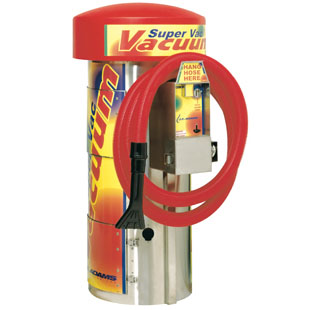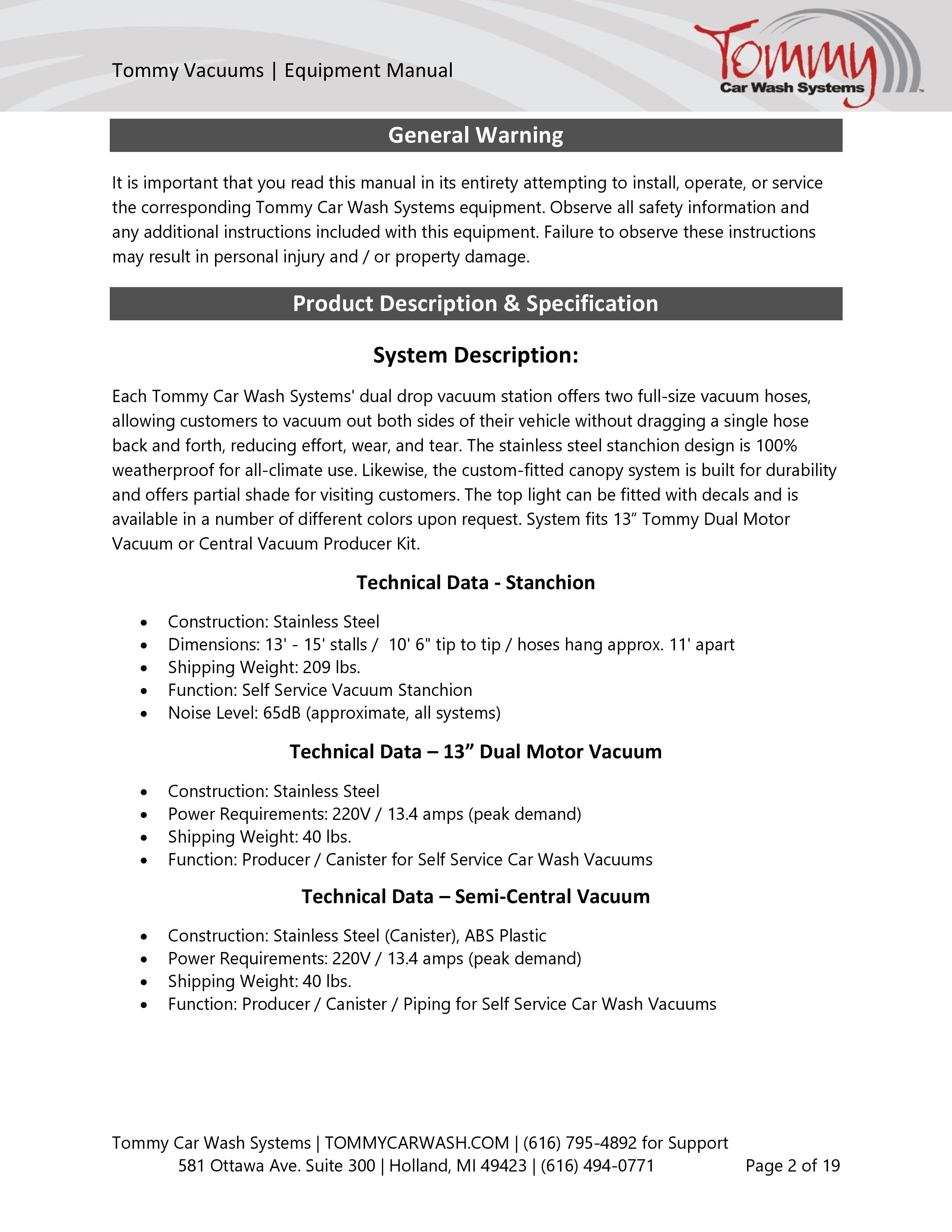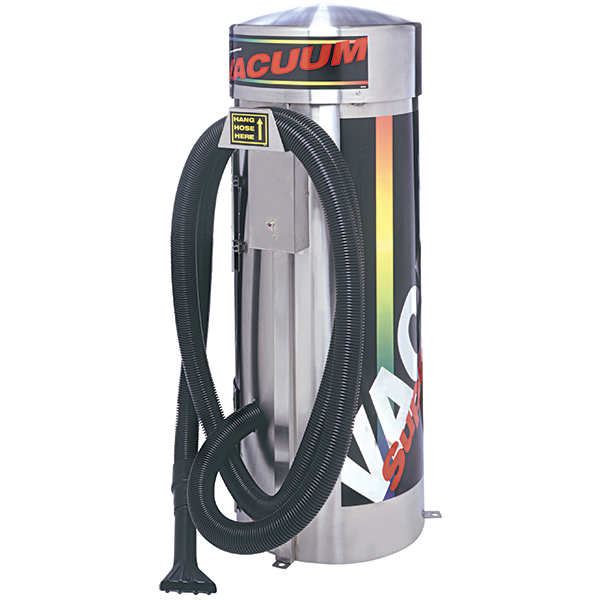The amperage of vacuums at car washes typically ranges from 10 to 20 amps. Some high-performance models may exceed this range, drawing up to 30 amps.
Car wash vacuums are essential tools for maintaining vehicle cleanliness. They provide powerful suction to remove dirt, debris, and hair from interiors. Understanding their amperage is crucial for ensuring the equipment operates efficiently without overloading electrical circuits. Most commercial car washes utilize heavy-duty vacuums designed for frequent use, often equipped with robust motors.
The amperage rating affects both performance and energy consumption, making it an important factor for business owners. Selecting the right vacuum not only improves service quality but also enhances customer satisfaction. Keeping electrical specifications in check ensures safe and effective operation in busy car wash environments.
Intro To Car Wash Vacuums
Car wash vacuums play a crucial role in vehicle cleaning. They help remove dirt, dust, and debris from various surfaces. Understanding their amperage can improve efficiency. This knowledge helps both car wash owners and customers. Let’s explore the role and types of vacuums available.
The Role In Vehicle Cleaning
Car wash vacuums serve multiple purposes:
- Remove dirt: They suck up dirt and grime from carpets and seats.
- Improve air quality: Clean interiors reduce allergens.
- Enhance appearance: Clean vehicles look more appealing.
High-quality vacuums ensure a thorough clean. They are essential for maintaining vehicle value and comfort.
Types Available
There are several types of car wash vacuums:
| Type | Amperage | Features |
|---|---|---|
| Wet/Dry Vacuums | 10-15 Amps | Versatile, handle liquid and solid waste. |
| Portable Vacuums | 5-10 Amps | Lightweight, easy to move around. |
| Stationary Vacuums | 15-20 Amps | Powerful suction, ideal for heavy-duty use. |
Choose the right vacuum type based on needs. Each type has unique features suited for different cleaning tasks.
Understanding Amperage
Amperage measures the flow of electric current. It is important in many devices, including car wash vacuums. Knowing the amperage helps you understand how powerful these vacuums are.
Basic Concept
Amperage, or amps, indicates how much electricity flows in a circuit. It works alongside voltage and resistance. Here’s a simple breakdown:
- Amps (A): Measures electric current.
- Volts (V): Measures electric potential.
- Ohms (Ω): Measures resistance.
The relationship between these three is shown in Ohm’s Law:
I = V / R
Where I is current in amps, V is voltage, and R is resistance in ohms.
Why It Matters for Vacuums
Amperage affects vacuum performance directly. Higher amps usually mean more suction power. This helps remove dirt and debris more effectively.
Consider the following:
| Amperage (A) | Suction Power | Typical Use |
|---|---|---|
| 5-10 A | Low suction | Light cleaning |
| 10-15 A | Moderate suction | General cleaning |
| 15+ A | High suction | Heavy-duty cleaning |
Higher amperage can lead to:
- Faster cleaning times
- Better dirt removal
- Increased durability
Choosing the right vacuum depends on your cleaning needs. Know the amperage to find the best vacuum for your car wash.
Typical Amperage Range
The amperage of vacuums at car washes varies widely. Understanding this range helps in choosing the right vacuum. The typical amperage can affect efficiency and performance.
Commercial Vs. Residential Models
Commercial vacuums usually have higher amperage than residential models. Here’s a quick comparison:
| Model Type | Typical Amperage | Usage |
|---|---|---|
| Commercial | 10-20 Amps | Frequent use, heavy-duty tasks |
| Residential | 5-15 Amps | Occasional use, lighter tasks |
Commercial vacuums deliver power for tough jobs. They handle debris and dirt effectively. Residential models suit light cleaning tasks.
Factors Influencing Amperage
Many factors influence the amperage of car wash vacuums:
- Motor Size: Larger motors use more power.
- Vacuum Type: Wet/dry vacuums often need more amperage.
- Accessories: Extra tools can increase power needs.
- Cleaning Speed: Faster cleaning may require higher amperage.
Understanding these factors helps in selecting the right vacuum. Choose a model that meets your cleaning needs.

Credit: www.steam-brite.com
Comparing Power
Understanding the amperage of vacuums at car washes is crucial. It helps determine the power and efficiency of these machines. This section compares amperage and wattage, highlighting their impact on cleaning efficiency.
Amperage Vs. Wattage
Amperage measures electric current. Wattage measures electrical power. These two terms are connected through the formula:
Power (W) = Voltage (V) × Amperage (A)
Here’s a quick comparison:
| Aspect | Amperage (A) | Wattage (W) |
|---|---|---|
| Definition | Electric current flow | Power consumption |
| Measurement | Amperes | Watts |
| Importance | Current strength | Energy usage |
A higher amperage means more current flows through the vacuum. This can lead to better performance and faster cleaning. However, wattage indicates how much energy the vacuum uses.
Impact On Cleaning Efficiency
Higher amperage often results in more powerful suction. This improves dirt and debris removal. Here are some factors to consider:
- Vacuum design and motor quality
- Type of surfaces being cleaned
- Duration of use
Machines with higher amperage can clean larger areas faster. They are ideal for busy car washes. However, too much amperage can lead to overheating. Proper balance is key for optimal performance.
In summary, knowing the amperage helps in selecting the right vacuum. It ensures efficient cleaning and customer satisfaction.
Selecting The Right Vacuum
Choosing the right vacuum for car washes is crucial. The right vacuum ensures effective cleaning and customer satisfaction. Understanding the amperage and features helps in making an informed decision.
Amperage Considerations
Amperage plays a key role in vacuum performance. Higher amperage typically means more powerful suction. However, higher amperage can increase energy costs.
| Amperage | Power Level | Typical Use |
|---|---|---|
| 5-7 Amps | Light Duty | Quick clean-ups |
| 8-10 Amps | Medium Duty | General car cleaning |
| 11-15 Amps | Heavy Duty | Detailed cleaning |
Consider the workload at your car wash. Choose a vacuum with suitable amperage for your needs. Balance between performance and energy consumption is essential.
Other Features To Consider
Beyond amperage, evaluate other important features:
- Filtration System: A good filter captures dirt and allergens.
- Hose Length: Longer hoses reach difficult areas better.
- Attachments: Different attachments improve versatility.
- Noise Level: Quieter models enhance customer experience.
- Portability: Lightweight models are easier to move.
Consider these features alongside amperage. A well-rounded vacuum meets all cleaning needs. Prioritize features that suit your car wash environment.
Safety Tips
Using vacuums at car washes requires safety awareness. Follow these tips to ensure safe operation. Proper usage and maintenance are key to preventing accidents.
Proper Usage
Using vacuums safely is essential. Here are some important points to remember:
- Read the manual: Always check the manufacturer’s instructions.
- Check power supply: Ensure the voltage matches the vacuum’s requirements.
- Avoid wet surfaces: Do not use vacuums on wet ground.
- Keep cords clear: Make sure cords are not in walking paths.
- Wear protective gear: Use gloves and goggles for extra safety.
Maintenance For Longevity
Regular maintenance increases the vacuum’s life span. Here are some maintenance tips:
- Clean filters: Check and clean filters regularly.
- Inspect cords: Look for frays or damage on cords.
- Check brushes: Ensure brushes are not worn or damaged.
- Store properly: Keep vacuums in a dry place away from moisture.
- Schedule professional checks: Consider annual professional maintenance.
| Task | Frequency |
|---|---|
| Clean filters | Monthly |
| Inspect cords | Weekly |
| Check brushes | Monthly |
| Store vacuums | Always |
| Professional check | Annually |
Innovations In Vacuum Technology
Vacuum technology in car washes has seen remarkable progress. These innovations improve efficiency and effectiveness. Modern vacuums are faster, quieter, and more powerful. They also consume less energy, making them eco-friendly.
Recent Advancements
Several recent advancements have transformed car wash vacuums:
- High-Efficiency Motors: These motors enhance suction power.
- Smart Sensors: Sensors adjust suction based on debris type.
- HEPA Filters: These filters trap allergens and dust particles.
- Noise Reduction Technology: This makes vacuums quieter.
- Compact Designs: Easier to install and use.
Future Trends
Future trends in vacuum technology promise even more innovation:
- Automation: Robotic vacuums may operate independently.
- Wireless Systems: Cordless vacuums will enhance mobility.
- AI Integration: Smart algorithms will optimize cleaning processes.
- Eco-Friendly Materials: Sustainable materials will become standard.
- Mobile Apps: Users may control vacuums via smartphones.
| Technology | Benefits |
|---|---|
| High-Efficiency Motors | Increased suction with less energy use |
| Smart Sensors | Adjusts power for optimal performance |
| HEPA Filters | Improved air quality by trapping dust |
| Noise Reduction | Quieter operation for a better experience |
| Compact Designs | Space-saving and user-friendly |

Credit: tommycarwash.zendesk.com
Real-world Applications
Understanding the amperage of car wash vacuums helps users choose the right equipment. It impacts efficiency and performance. Here, we explore real-world applications through case studies and user experiences.
Case Studies
Various car wash facilities utilize different amperage levels for their vacuums. Here are a few notable examples:
| Car Wash Type | Amperage Used | Performance Notes |
|---|---|---|
| Self-Service Car Wash | 10 Amps | Efficient for light cleaning tasks. |
| Full-Service Car Wash | 15 Amps | Handles heavy debris effectively. |
| Detailing Shops | 20 Amps | Excellent suction for thorough cleaning. |
User Experiences
User feedback highlights the importance of amperage in performance:
- Self-Service Users: Prefer lower amperage for easy handling.
- Full-Service Users: Appreciate higher amperage for faster results.
- Detailing Professionals: Rely on maximum amperage for best results.
Many users report:
- Higher amperage vacuums reduce cleaning time.
- Lower amperage vacuums are easier to maneuver.
- Choosing the right amperage improves overall satisfaction.

Credit: www.dultmeier.com
Frequently Asked Questions
What Is The Average Amperage Of Vacuum Cleaners?
Most car wash vacuums typically operate between 10 to 15 amps, depending on their design and power requirements.
How Does Amperage Affect Vacuum Performance?
Higher amperage generally means stronger suction power, leading to more effective cleaning during your car wash.
Can I Use A Regular Vacuum At A Car Wash?
Using a regular vacuum is not recommended; car wash vacuums are designed for heavy-duty cleaning and higher performance.
Are Higher Amperage Vacuums Worth It?
Yes, higher amperage vacuums provide better suction, making your car cleaning process quicker and more efficient.
Conclusion
Understanding the amperage of vacuums at car washes is essential for optimal performance. Higher amperage often means more powerful suction, leading to better cleaning results. Always check specifications before using. This ensures you choose the right vacuum for your needs, enhancing your car cleaning experience significantly.
Happy detailing!
